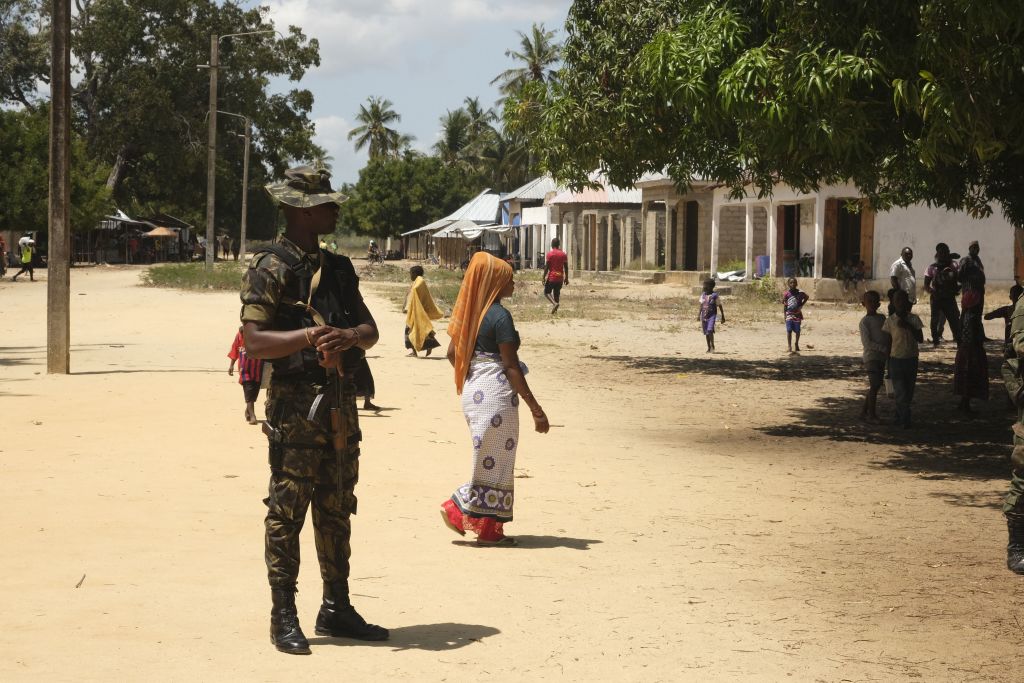ADF STAFF
Signs of hard-won incremental progress have appeared in Mozambique’s fight against the violent extremist insurgency that has plagued its northern province of Cabo Delgado since 2017.
Two years ago, the Battle of Palma marked an inflection point in the country’s approach to fighting the terrorists linked to the Islamic State group.
At least 300 Ansar al-Sunna militants seized and terrorized the seaside city of 75,000 residents from March 24 to April 5, 2021, killing dozens of civilians and Soldiers, displacing tens of thousands, and destroying several buildings.
The attack also threatened a $20 billion liquid natural gas project, located 4 kilometers outside Palma, that is critical to the country’s economic future.
During the battle, Martin Ewi, senior researcher at the South Africa-based Institute for Security Studies (ISS), noted that counterterrorism efforts in Africa historically have failed without bilateral or regional collaboration.
“I don’t think that Mozambique can defeat the insurgency, because no single government has managed to do so,” he told Al Jazeera on March 30, 2021. “We shouldn’t dream that Mozambique alone can find a solution to what is happening in Cabo Delgado.”
It was the first attack in Mozambique claimed by the Islamic State group, signaling its success and giving the local insurgency worldwide attention.
In its aftermath, Mozambican authorities shifted their response.
Today, a bilateral military pact with Rwanda and its 2,800 troops has helped stabilize Palma, while the Southern African Development Community Mission in Mozambique (SAMIM) and its 1,900 personnel have helped improve the security situation in other parts of the province.
In April, SAMIM’s largest troop-contributor, South Africa, extended its deployment of 1,495 Soldiers through April 2024.
With troops securing the province, critical roads have reopened. Some commerce and humanitarian aid have begun to return along with limited basic services.
Most importantly, about 350,000 internally displaced people returned to their homes by the end of March 2023.
The weakened rebels, however, have proved resilient in shifting to more of a guerilla style of fighting with smaller, mobile cells.
“Stability in the province’s northeast contrasts with a volatile situation in the north, central and southern districts,” security researcher Borges Nhamirre wrote in an ISS analysis on April 3.
“Insurgents displaced from Palma, Mocímboa da Praia and their bases on the Messalo River have split into smaller cells. They have adapted to new conditions, carrying out coordinated attacks in several districts.”
Coordination and communication issues continue to trouble the joint forces, as sources told ISS of several incidents of friendly fire and one case of surveillance drones downed by mistake.
Much of Cabo Delgado’s population — about 850,000 — remains displaced, and the rebels have not been defeated.
Experts insist that a military-only approach will not extinguish the insurgency.
“So far, the African Union and its Peace and Security Council have taken a back seat,” the ISS’s Liesl Louw-Vaudran wrote in 2022. “Coordination and a joint vision for tackling the root causes of violent extremism are crucial going forward.”
A recent report by the Centre for Democracy and Development in Mozambique concluded that coordination across sectors is key to addressing the root causes of the insurgency.
“Military actors in the peace sector have not cooperated effectively in sharing information with each other and with non-military actors,” the report stated. “In the humanitarian sector, meanwhile, actors tend to compete for access to resources rather than cooperate in implementing their programs.
“The lack of integration between humanitarian, development and peacebuilding approaches is the main challenge to an effective response to violent extremism in Cabo Delgado.”

